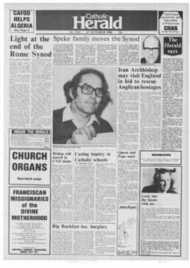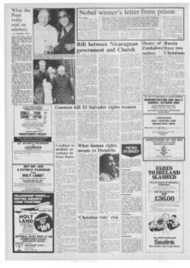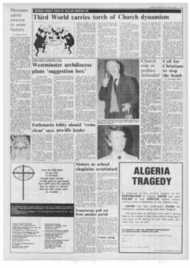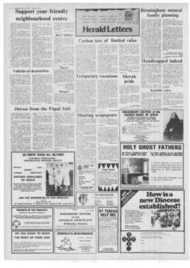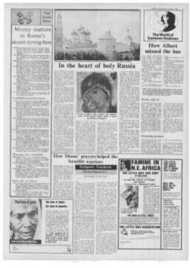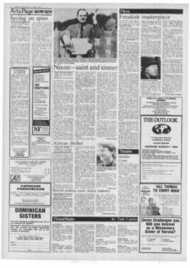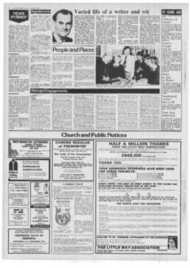Page 2, 17th October 1980
Page 2

Report an error
Noticed an error on this page?If you've noticed an error in this article please click here to report it.
Tags
Share
Related articles
Sandinista Government Attacked By Obando
Managua Priest Falls Foul Of Cardinal Obando
Priest To Stay In Government
Bishop Under Attack By Nicaragua Church
Christianity And The Revolution In Conflict
Rift between Nicaraguan government and Church
THL CLOSE co-operation between the Church and the one year old revolutionary government in Nicaragua is in danger of breaking down following a strong attack by Archbishop Miguel Obando Bravo on the government's educational policy.
The archbishop said the government's thinking on education was "obviously materialistic" and Marxist-in spired. He also criticised the Ministry of Education for not consulting parents on a programme scheduled to start in December which will include having children work on farms.
He said his criticisms • were based on a careful study of several government documents on the subject.
these documents were "inspired by Marxist-Leninist theories since they clearly quote from Russian and Cuban teachers and Fidel Castro," he said. They also relied heavily on the theory of evolution.
"The documents are based on an obviously materialistic philosophy. The Church teaches that God is the creator. that God created man therefore in a direct act," he said.
"lt leads children and youths to believe that work is good for their gam th and health. that contact with workers is beneficial. since workers have an ideology. That the national economy stands to gain when children are turned away from consumerism to become producers."
Regarding the programme involving farm work, the archbiShop said that parents should be consulted and "should have the last word."
He recalled that the Nicaraguan bishops supported the National Literacy Crusade which ended in August, The government said half a million peasants were taught to read and write at the first grade level during the literacy campaign. He added that the bishops were willing to foster dialogue between the government and parents.
There have been public demonstrations by parents against the school policies. Archbishop Obando said "they have the right to protest, since we are in a free country where we must speak up, particularly if our children are at stake."
He praised efforts to teach the young "to share in a spirit of generosity" by exposing them to the pris Atolls of rural life in Nicaragua. But he cautioned that their inexperience could be harmful in terms of improving production. He also said they could be taking jobs away from adults. thus worsening the high unemployment rate.
"Besides. I hope that as the revolution goes on. if it is to pursue the common good, it will concern itself with the fate of the peasant children who in the past had to work hard to survive, thus being deprived of schools. The revolution must see to it that these children do go to school now and become useful members of society," said the archbishop.
in Paris to accept a UNESCO award for the literacy campaign. Jesuit Father Fernando Cardenal, its director. said the first aim of education in Nicaragua "is political ... vet under the guidance of the -Sandinistas there is profound respect for religious beliefs." He said the textbooks used during the campaign advocated "freedom of worship" and the path a Christian believer should follow.
blog comments powered by Disqus


